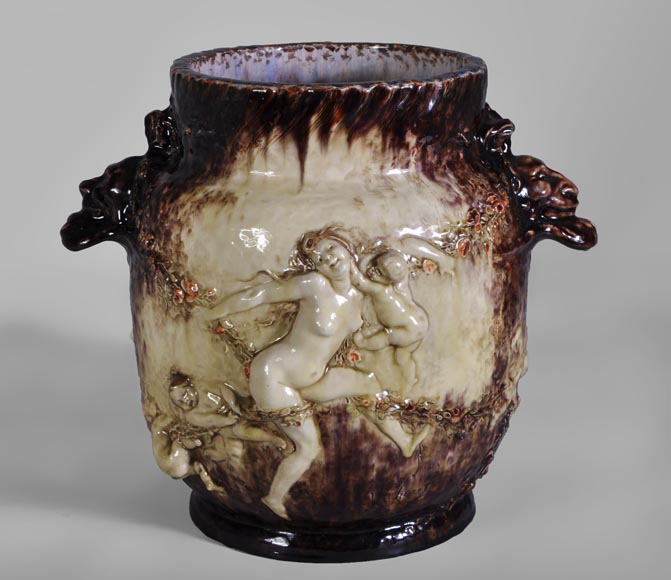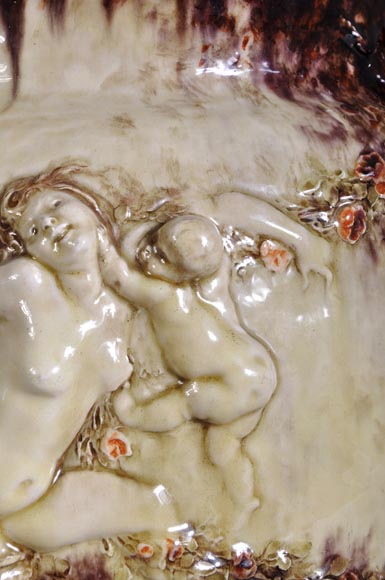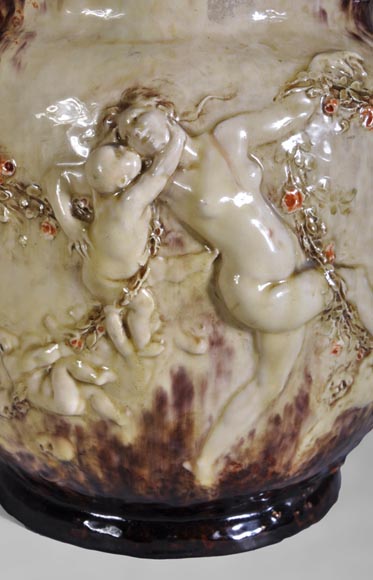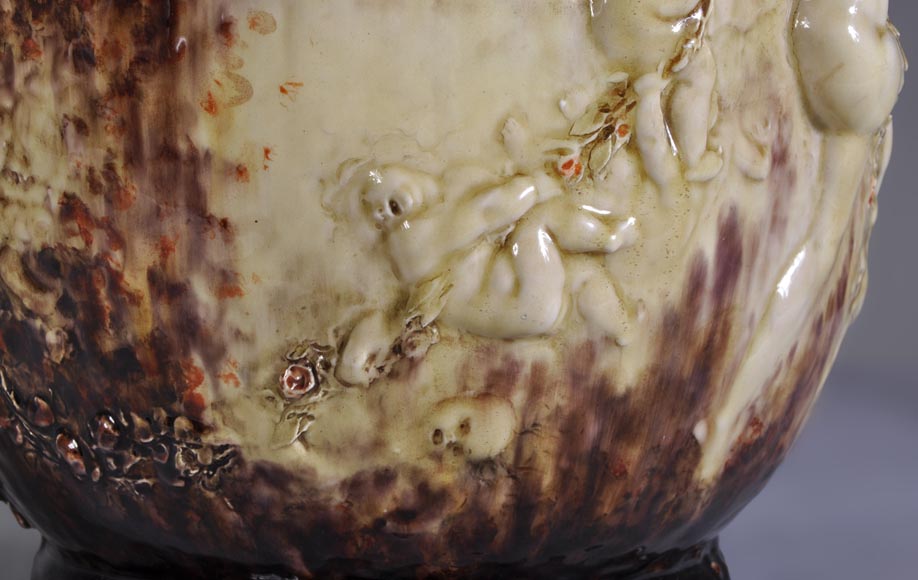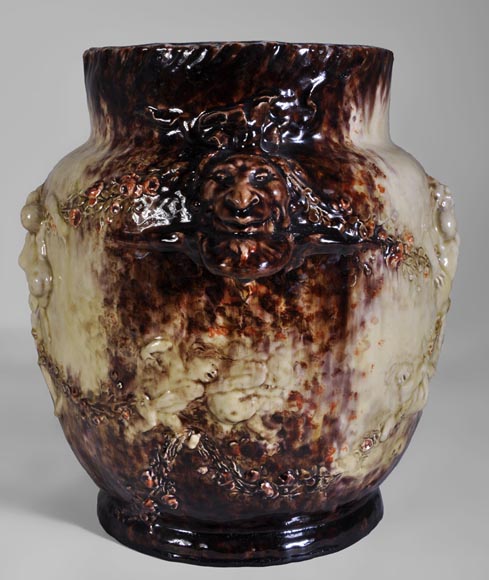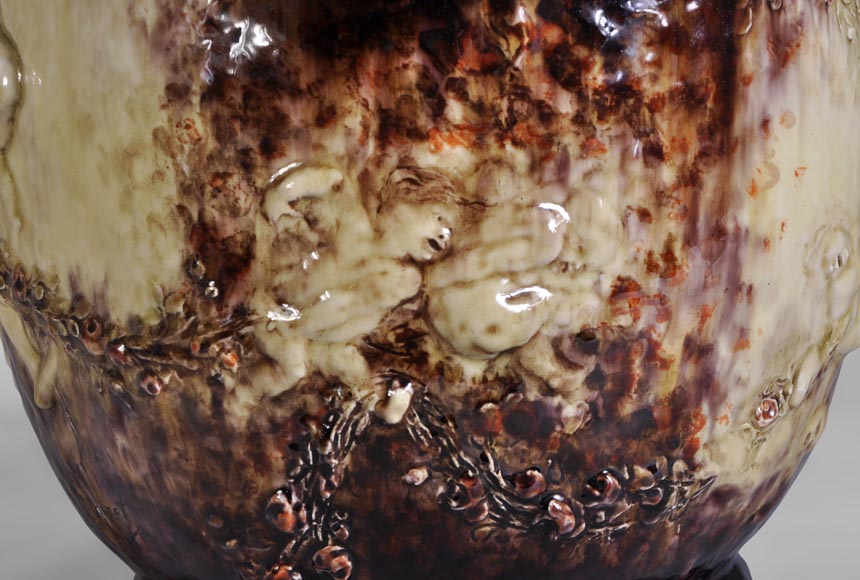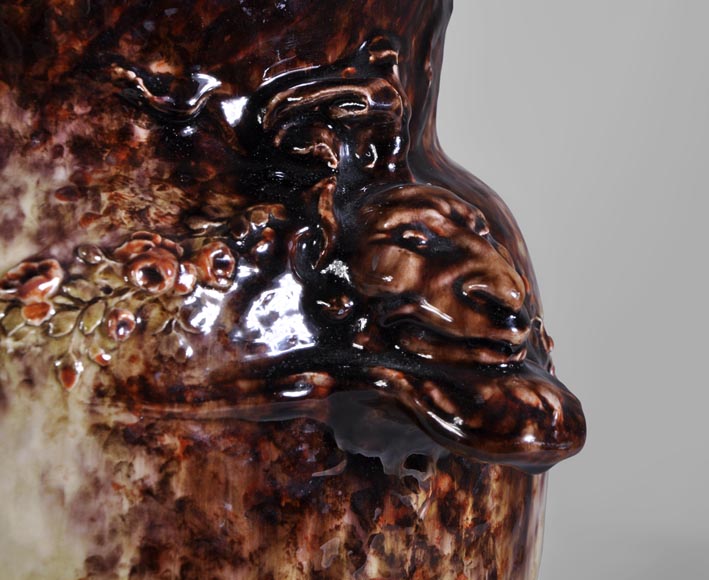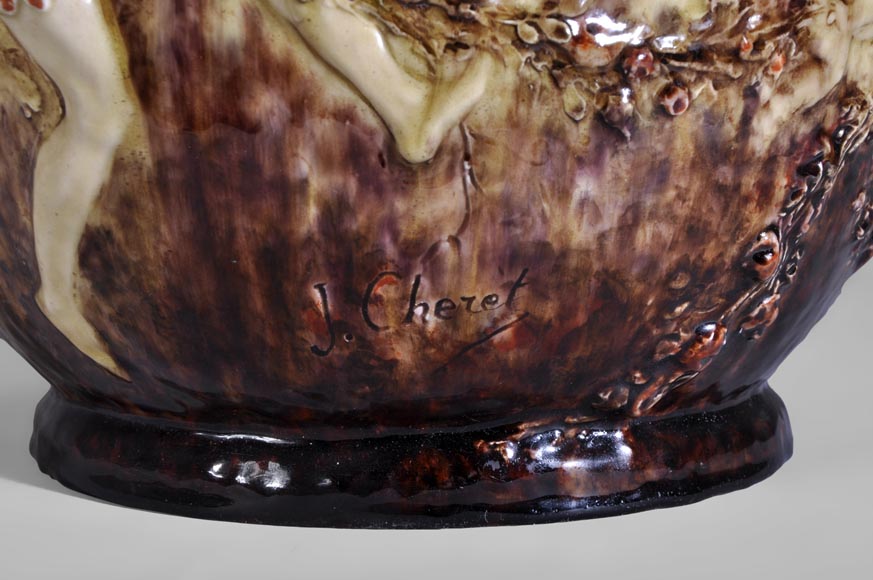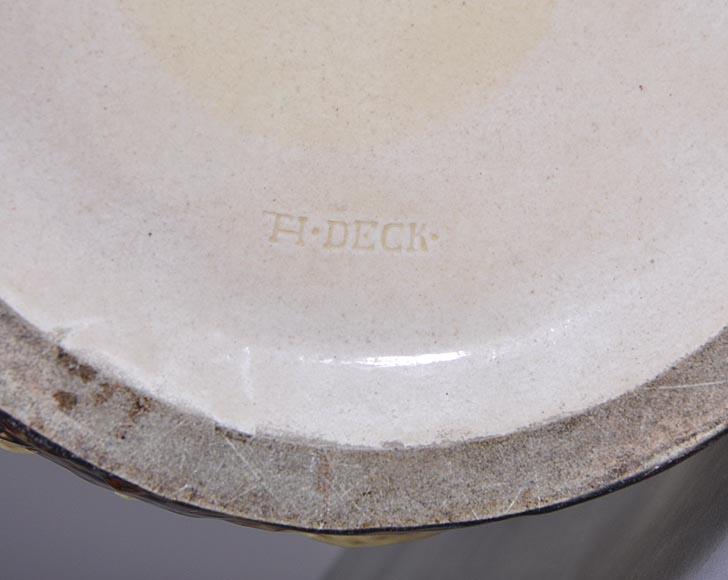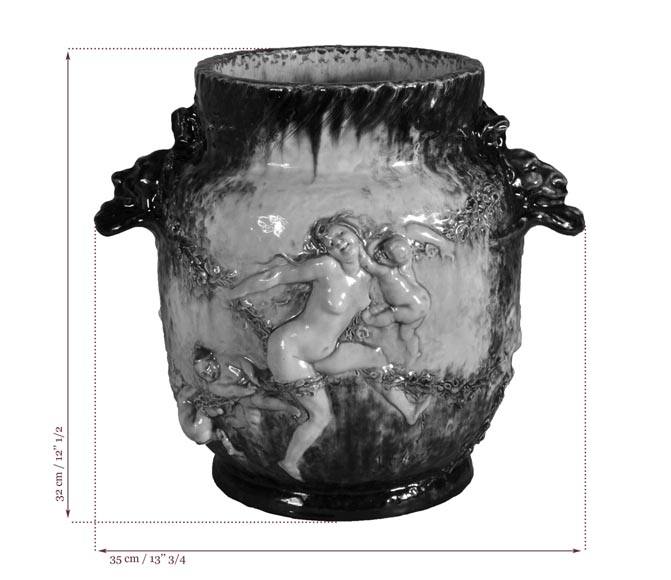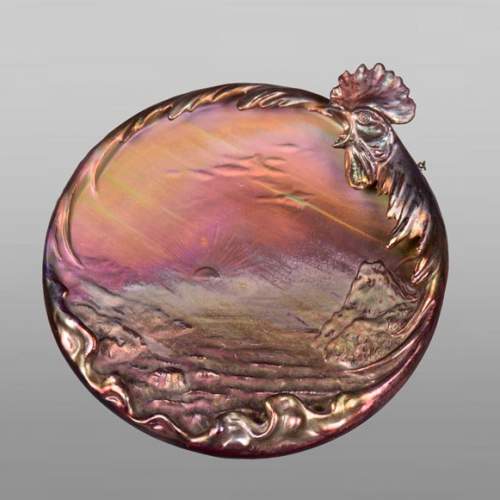Style Napoleon III / Ref.03345
Théodore DECK (1823-1891) and Joseph Gustave CHERET (1838-1894) - Large vase with decoration of nymphs and cherubs
Dimensions
Width 13'' ¾ 35cm
Height 12'' ⅝ 32cm
Depth: 12'' ⅝ 32cm
Origin:
Circa 1880-1890. France.
Signed “TH. DECK” under the foot and “J. Chéret” on the body, beneath the barbotine figures.
Status:
In excellent condition.
A Napoleon III style , large, rounded vase with a straight neck and raised decoration of mannerist-inspired naiads and cherubs dancing, encircled by continuous garlands of orange-colored flowers, and flanked by two protruding handles sculpted into heads of grotesques. This enameled ceramic vase features a beautiful mauve varnish that fades into an off-white cream color in the center, as well as barbotine, a creamy mixture of kaolin clay used to ornament pottery, particularly in the late-1800's.
Signed “TH. DECK” under the foot and “J. Chéret” on the body, beneath the barbotine figures.
Deck and Chéret Collaboration:
Théodore Deck and Joseph Chéret worked together several times, particularly to create vases, pot holders, different types of cups, and faience centerpieces. Most of the time, the barbotine figures and ornaments sculpted by Chéret adorn the vase or cup created by Deck. In 1887, they worked together at the manufacture nationale de Sèvres, one of the principal European porcelain factories. Deck was the director of the factory, and Chéret the director of artistic works.
Théodore Deck:
Joseph-Théodore Deck (1823-1891) was a French potter from Alsace. In 1856, he founded his own atelier in Paris, where he created his famous turquoise color, bleu de Deck, in 1861. His pottery was inspired by Persian ceramics and Italien maiolica. He had personal, diverse interpretations of old and new techniques and styles. During the 1870's, he participated in the expansion of Japonism . From 1887 to 1891, he ended his career as the director of the manufacture nationale de Sèvres, where he developed a new kind of soft-paste porcelain suitable for making reproductions of the factory's 18th-century styles. He also introduced rich, monochrome glazes. Deck collaborated with many artists, including painters such as Raphaël Collin and Eléonore Escallier, as well as sculptors, like Joseph Chéret.
Joseph Chéret:
Joseph Gustave Chéret (1838-1894) was a Parisian sculptor, the younger brother of well-known poster painter Jules Chéret. He was an apprentice of Vallois and Carrier-Belleuse, whose daughter he married. He became and renowned artist at the Salon during the 1880's. When his father-in-law passed away in 1887, he succeeded him as director of artistic works at the Sèvres factory. In 1891, he participated in an exhibition at the Société Nationale des Beaux-Arts (National Society of Fine Arts), where he became a member three years later. In 1894, he was also made a Chevalier of the Légion d'Honneur, the highest distinction in France.
Joseph Chéret sculpted statuettes, groups, vases, and pot holders, adorning them with figures, scenes, and motifs. He collaborated with renowned manufacturers such as Christofle metalwork, but also with successful artists like Louis Royer and Théodore Deck.
Informations
Price: on request
Recommended for you :
Dimensions:
Width: 44
Height: 9
Diameter: 39
Dimensions:
Width: 26
Height: 17
Depth: 15
Dimensions:
Width: 40
Height: 78
Depth: 24
Dimensions:
Width: 35
Height: 34
Depth: 16
Dimensions:
Height: 20
Diameter: 37
Dimensions:
Width: 45
Height: 25
Diameter: 45
Dimensions:
Diameter: 60
Dimensions:
Height: 36
Dimensions:
Height: 116
Diameter: 48
Dimensions:
Height: 113
Diameter: 58
Dimensions:
Height: 8
Diameter: 41



